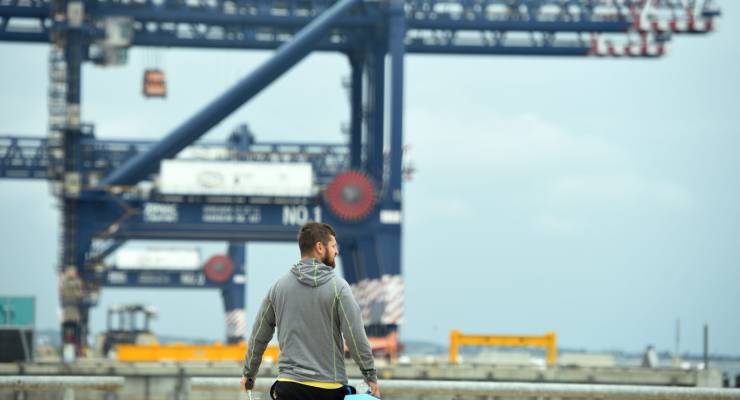
The Australian economy, which passed away peacefully in its sleep on Wednesday, December 7, 2016, enjoyed a long and varied life, filled with adventure and incident, during which it was warmly beloved by all who knew it.
Born on January 1, 1901, the Australian economy was a lively and energetic youngster, remembered fondly by contemporaries for its high spirits and love of riding around on a sheep’s back. This youthful idyll, though providing many lucrative memories, could not last, and a sombre shadow was cast over the young economy’s life by the advent of World War I, and the difficulties that wartime industry and the loss of a large percentage of the workforce are bound to have on an economy still trying to find its feet in the world.
As time went on, friends remember the Australian economy spending less and less time on its beloved pet sheep, and finding other interests such as wheat, milk and metal. Like many young adults of that age, the economy found itself drawn to experimentation, hopping on and off the gold standard in its quest to “find itself”, but even when this phase passed, the economy found that its adolescent battle with body image persisted for most of its life, and it found itself swinging between inflation and deflation for many years, a sad indictment of the unreasonable expectations society places on economies.
In its later years, there were those who expressed concern that the Australian economy was becoming too fixated on metals and had given up hobbies like arts and crafts and submarines. Those who remembered the economy’s more stimulating days during World War II, when it was full of activity and even enjoyed some memorable overseas trips, were concerned that the economy had been failing to keep its mind alert, and its death was seen by some as an inevitable consequence of the decline in the economy’s interests.
The achievements of the Australian economy were many and impressive: liberalisation, deregulation, the successful sale of both a bank and an airline. In 1983, the economy managed to float its dollar, as a tribute to the victorious America’s Cup team. However, shortly after this, the celebrations turned to panic when the economy’s wayward son, Paul Keating, forced it into a recession against its will.
Tributes to the Australian economy were pouring in yesterday from friends and colleagues from around the world, including the US economy, which expressed condolences for the passing of its “little buddy”; the British economy, which called the Australian economy “one of my favourite children”; and Gina Rinehart, who remained tight-lipped over longstanding rumours of an affair between the economy and herself.
The Australian economy passed away at home, surrounded by family and friends, after a long battle with stagnation. Doctors diagnosed negative growth, but a post-mortem — to be carried out by Ross Gittins — is expected to provide a clearer picture on the exact cause of death. The Australian economy is survived by its eldest child the Federal Budget, its brother the Reserve Bank, and its faithful indentured servant the Australian environment.
The funeral will take place next Tuesday at 11am, at the Federal Treasury. The family has requested that in lieu of flowers donations be sent to the Australian Taxation Office.







I don’t know about “passed away”. I’m thinking it was a lot more like, the Coalition, in the House, with the Lead pipe.
Perhaps the ghosts of Black Jack McKewan & Wilson Tuckey still haunt the Hill, wreaking havoc?
The wake will be held 01/01/2017 when you will hear the tolling of the pensioners as they get clobbered with their Pension CUTS! Never LNP! Never AGAIN!
A wake in fright.